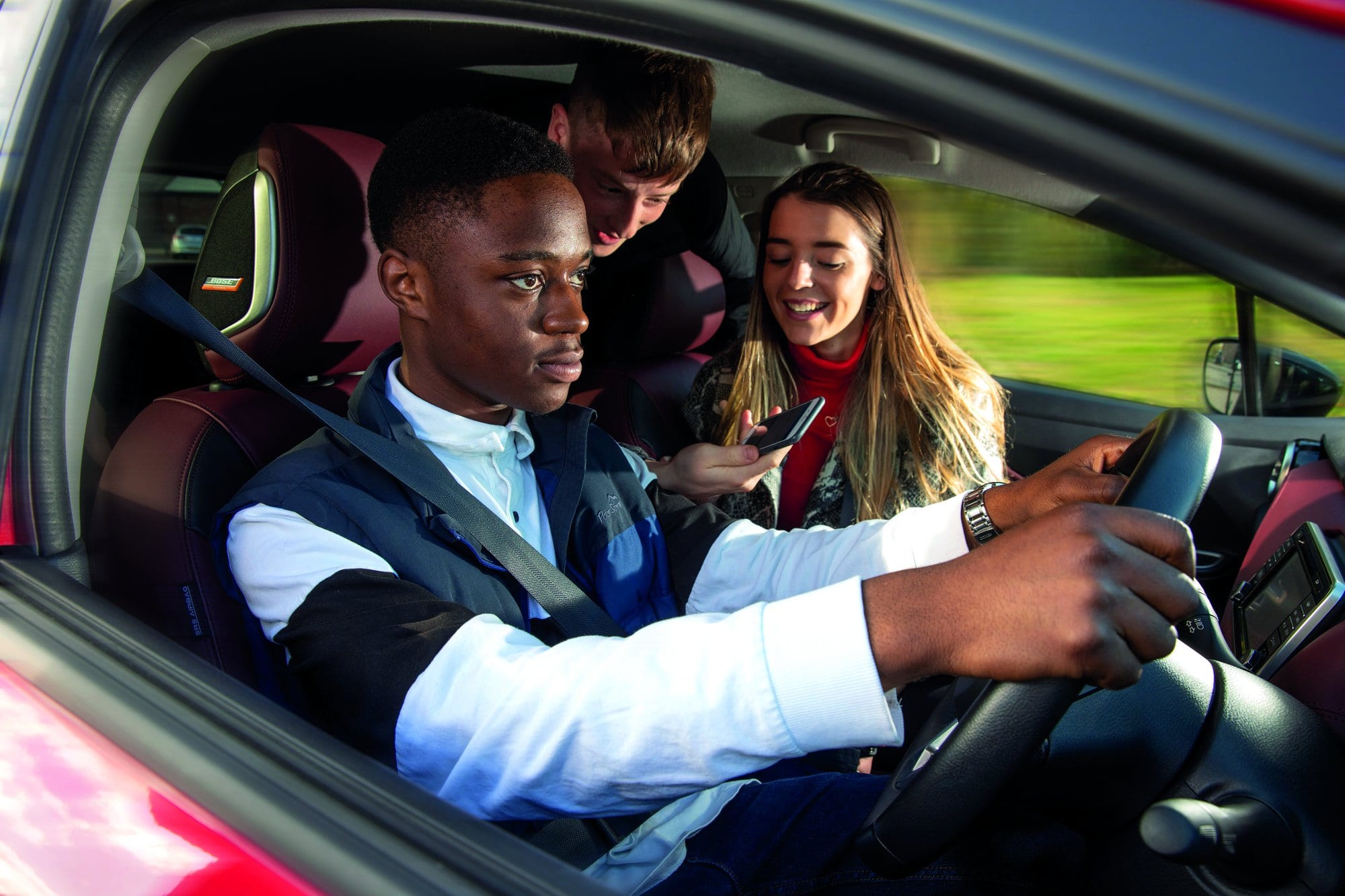The bleep of a text, loud music, your mate messing around in the passenger seat – sometimes there’s a lot going on in a car. Dealing with distractions isn’t easy, but it’s an important skill to learn when moving on to independent driving.
Not all distractions are against the law. Using a handheld mobile phone is illegal, banter with your best friend is not. But anything that takes your attention away from the road is dangerous.
Other people are one of the biggest distractions of all. Believe it or not, young drivers are up to five times more likely to crash when they have two or more passengers in the car.
If you are driving, stay focused. And if you’re the passenger, do yourself and the driver a favour – don’t arse around. Let the driver concentrate on driving. Dealing with distractions isn’t necessary if there are no distractions in the first place.
Five ways to deal with distractions
- Turn your phone off before you drive, and put it out of reach so you aren’t tempted to turn it back on.
- Keep the volume down and set the music playing before you set off.
- Set the sat nav destination before leaving. Rely more on voice instructions rather than staring at the screen, so you keep your eyes on the road.
- Stop to eat and drink. Don’t snack at the wheel.
- Talk later. Save in-depth conversations for when the journey is over.
Five ways to help the driver deal with distractions
- Put yourself in your shoes. With a tricky roundabout coming up, is now really the right time to ask if you can go to the drive-thru?
- Keep the conversation light. Traveling at 70mph on the motorway isn’t the best time to bring up their relationship break-up.
- Keep your phone to yourself. Showing them a text or a YouTube video while they’re driving is a dangerous distraction.
- Don’t interfere with the controls. It might seem like a joke, but it won’t be funny if you crash.
- Listen to the driver. If they ask you to tone it down a bit so they can concentrate, do it.



